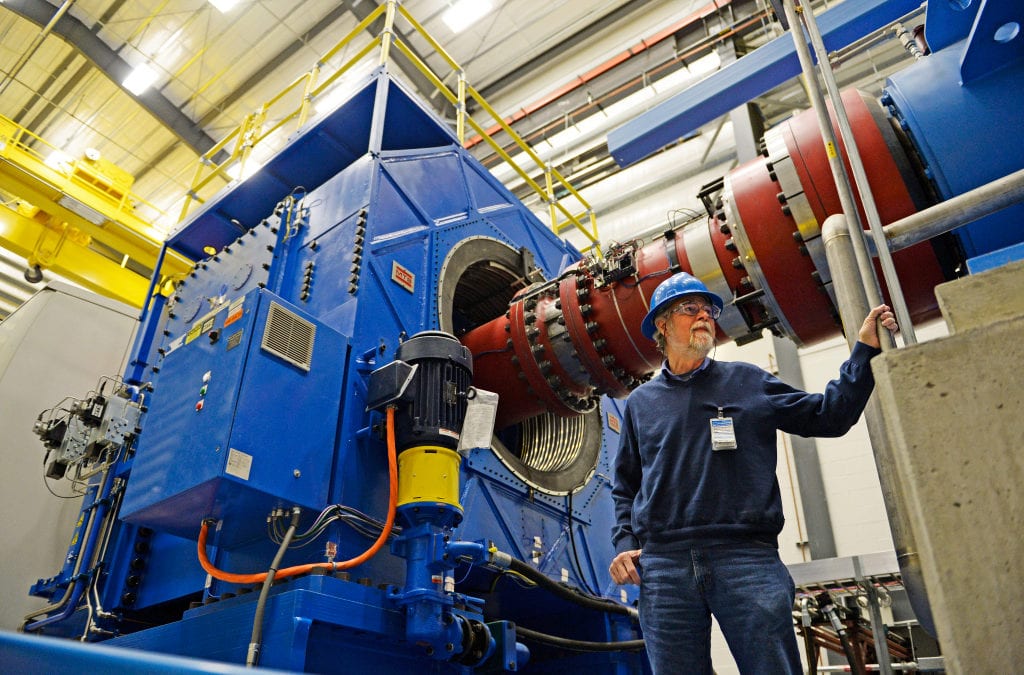A Commerce Department laboratory at the base of the Flatirons in Boulder, dedicated by President Dwight D. Eisenhower in 1954, is so old it is eligible for listing on the National Register of Historic Places.
It’s one of 33 federal labs in Colorado — and among hundreds across the U.S. — that Democratic U.S. Reps. Joe Neguse and Ed Perlmutter want to require the Government Accountability Office to study and report to Congress on the need for renovations and repairs.
Their legislation, to be filed Monday, would give the GAO six months to write a report assessing the state of federal labs — at least the ones that receive most of their funding from the federal government. The bill does not provide money for repairs or spell out any to be made.
“The conditions of the buildings are not up to building standards or up to par, especially relative to both our friends and our foes around the world who are researching,” said Dan Powers, executive director of CO-LABS, a nonprofit advocacy group for Colorado’s federal labs.
“That is a self-imposed limitation,” he added. “We indulge that at our peril.”
The bill will likely be sent to the House Science, Space and Technology Committee, of which Perlmutter, an Arvada Democrat, is a member. He and Neguse introduced a similar bill in 2019 that died in that committee.
“Colorado’s 2nd Congressional District is home to a plethora of federal labs, and we must make sure they are able to continue their crucial work,” Neguse said Friday, referring to the northern Colorado district he represents that includes the college towns of Boulder and Fort Collins.
The 2019 bill was also attached to an infrastructure package that passed the House but was not considered in the Senate. A Neguse spokeswoman says the congressman anticipates attaching his bill to an infrastructure package again this year. Its odds are now better with a Democratic Senate and Democratic president, Joe Biden, who has said he’ll prioritize infrastructure.
Colorado’s labs support seven federal departments — Agriculture, Commerce, Defense, Energy, Interior, Transportation and the National Institutes of Health — and study everything from sugar beets to ice cores to renewable energy and infectious diseases.
Powers is unsure how many Colorado labs will be found to be in need of repair if the bill becomes law. He said some labs have basic structural issues — roofs in need of repairs, faulty wiring or worsening foundations. Others have more modern problems, such as poor energy efficiency or a need for enhanced cybersecurity.
“Long-term investment, as a country, into the technologies that solve our challenges — that address the problems that we have — can only really be done well by the federal government,” he claimed. “It’s not the type of effort that a corporation or company of any size has the interest or financing to get into.”
This content was originally published here.

